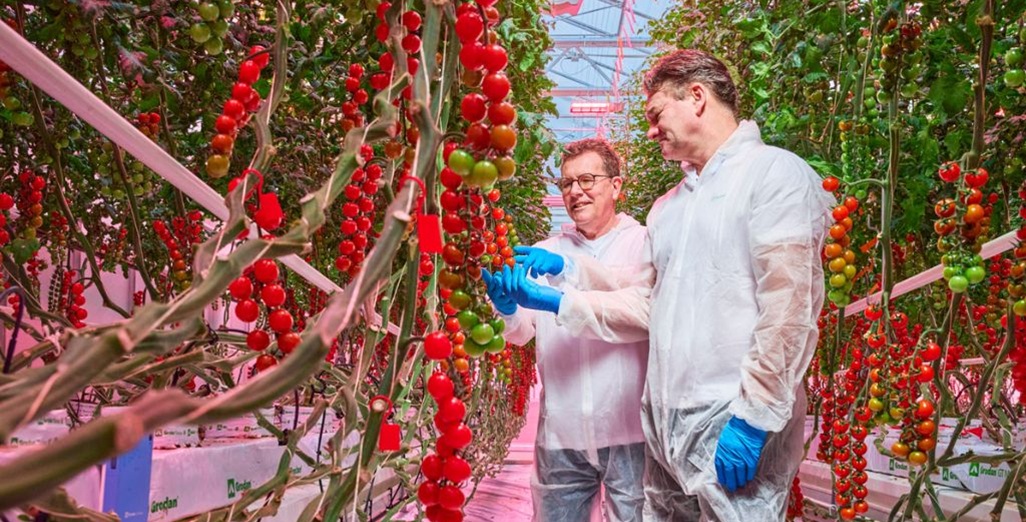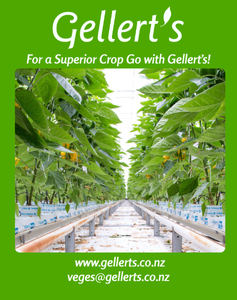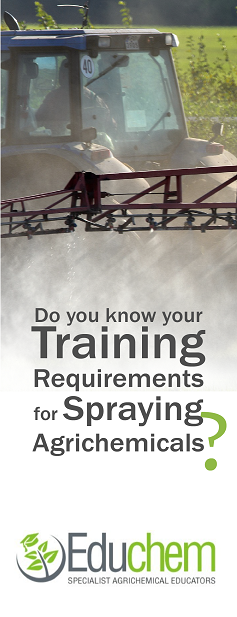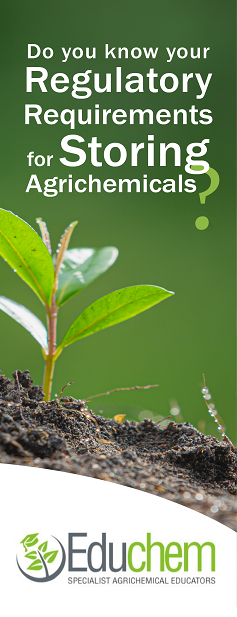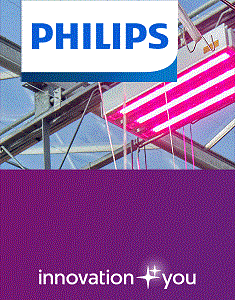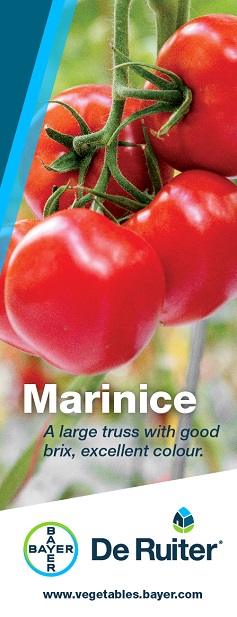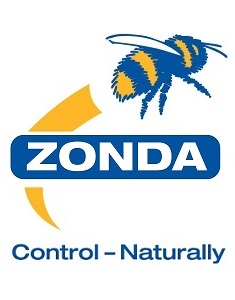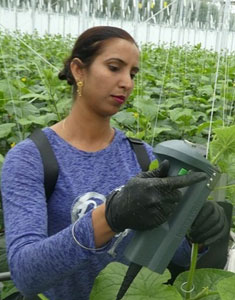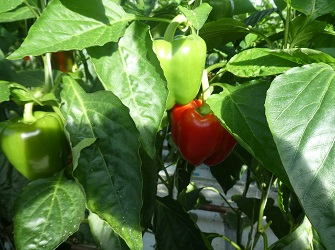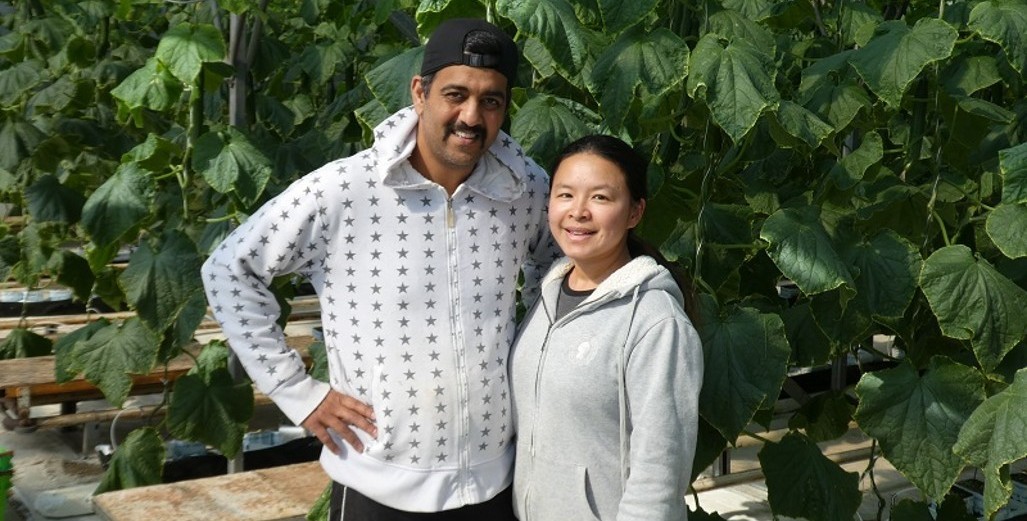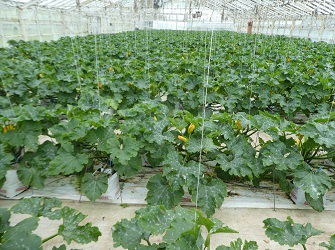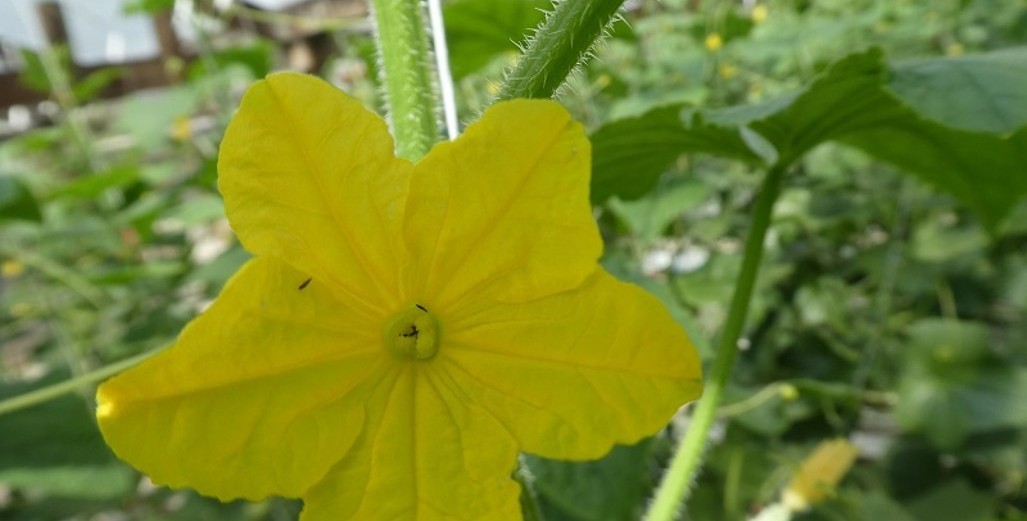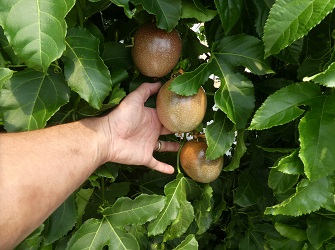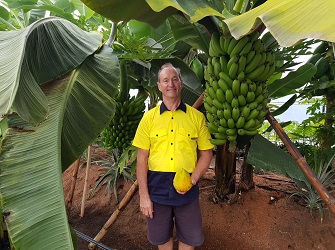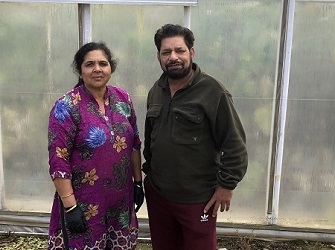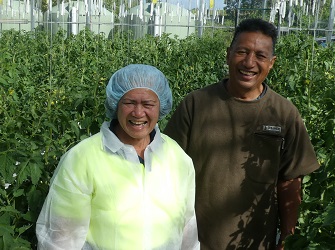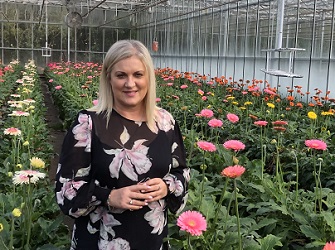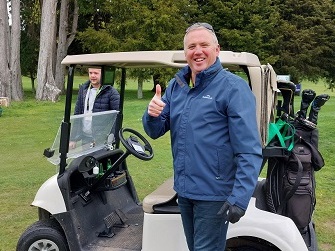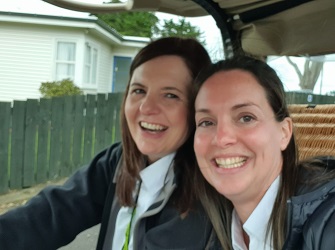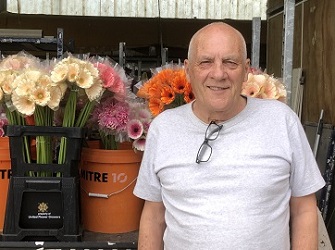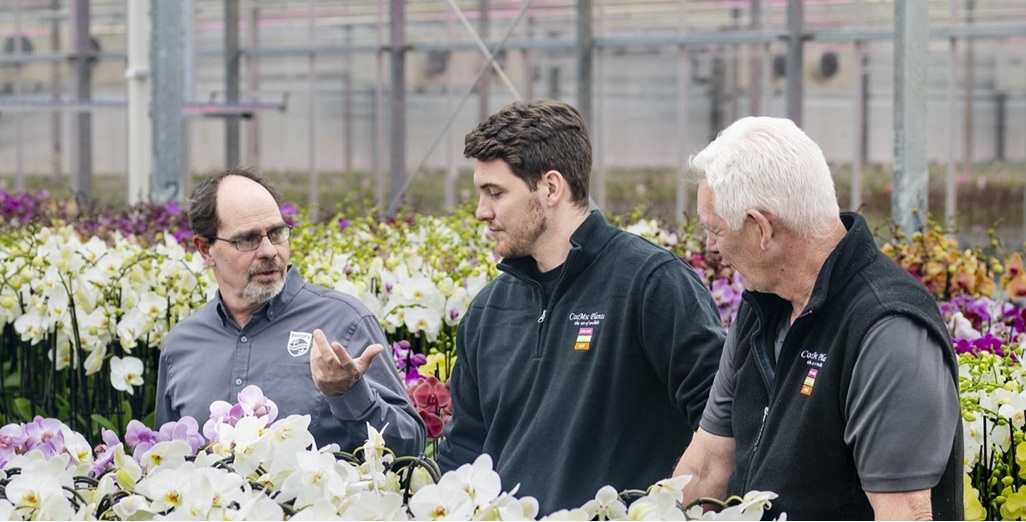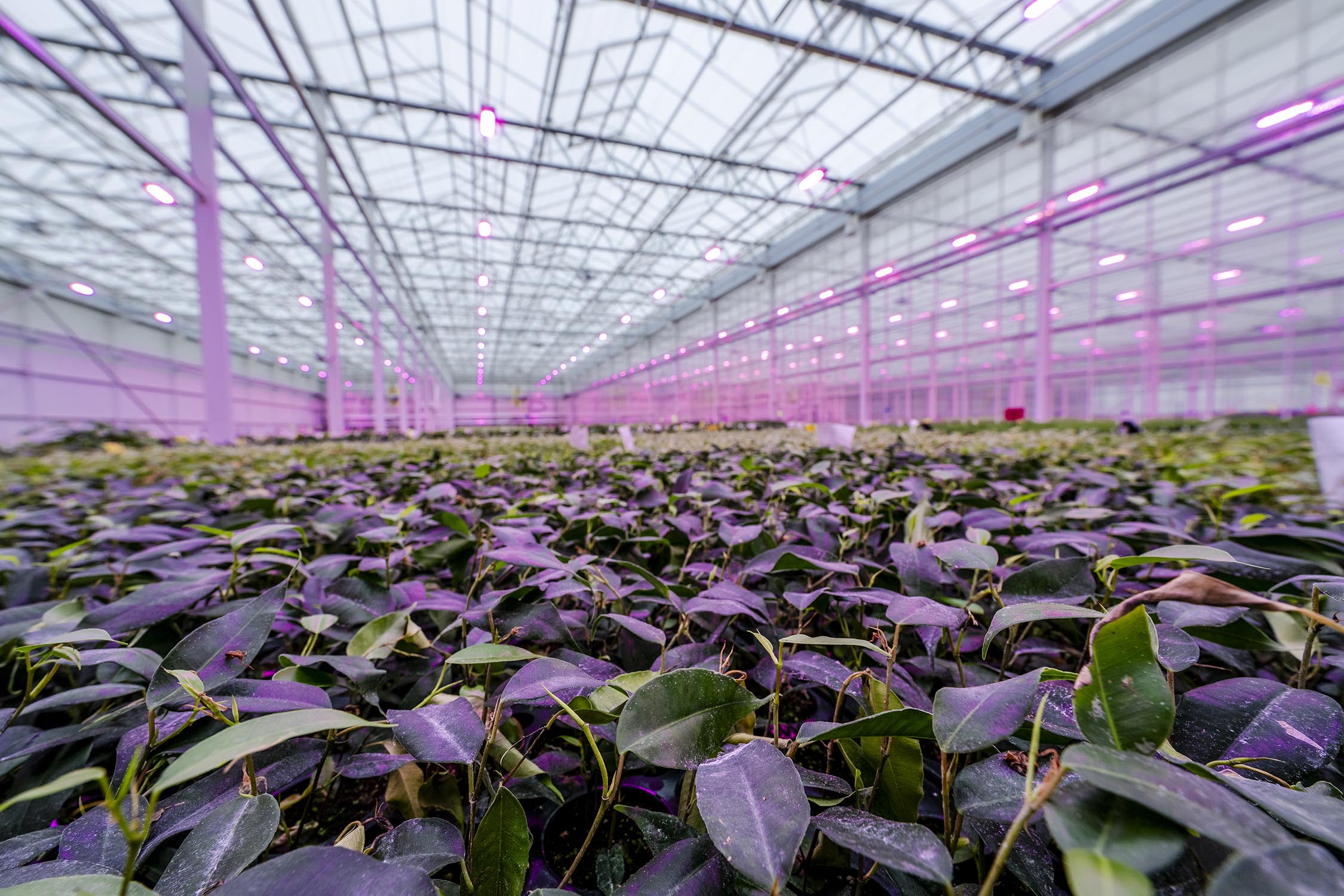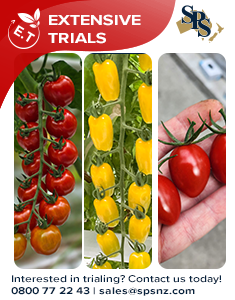Sign up here to subscribe to the Grower2grower Ezine. Every two weeks you will receive new articles, specific to the protected cropping industry, informing you of industry news and events straight to your inbox.
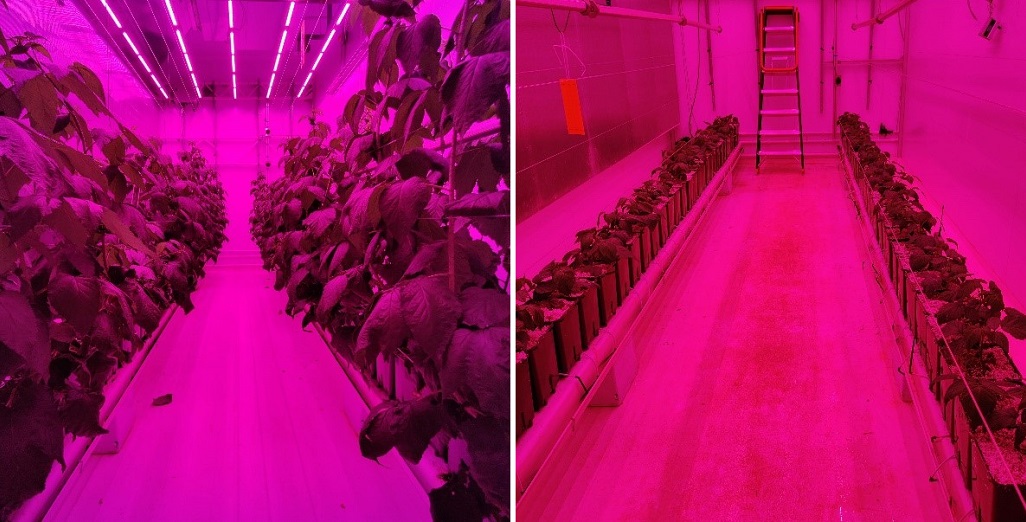
The results of this study show that repeated primocane cycles with fresh young plants could eventually yield approximately three times the outdoor full-year production per square meter.
Raspberry consumption across the globe has developed tremendously in the past years: optimized production methods and improved varieties have transformed raspberries into a popular fruit for fresh consumption. What if you would like to eat raspberries all year long at any location in the world? That’s where a vertical farm could come into play. In the Philips GrowWise Research Center by Signify, we explored how artificial lighting, hydroponics and precise climate control come together to optimize the growth of raspberries year-round.
Raspberries grow long stems (canes) that have a biennial life cycle. Some raspberry varieties are primocane-fruiting, yielding fruits on the new canes (primocanes) the first year in autumn and a second time on those canes (floricanes) in the second year of production in summer. Conversely, floricane-fruiting raspberries only produce nonfruiting primocanes in the first year and bear fruit exclusively on the floricanes in the following year. Our trial began with chilled primocane-fruiting young plants for the initial harvest flush. Compared to outdoor cultivation, by growing indoors we could maintain a higher planting density thanks to the precise regulation of climate, lighting, and irrigation, and by deeper light penetration into the crop canopy with our GreenPower LED interlighting solution.
Exploring the potential
When grown outdoors, undergoing a cold winter dormancy between the primocane and floricane raspberry flush is crucial for flower induction. Vernalization regulates flowering time and protects plants against extreme climate conditions, which could otherwise harm the crop. This natural process enables optimal primocane and floricane growth, ensuring successful fruit production during the growing season.
For our indoor farming trial, we decided to go for a primocane raspberry variety that requires little chilling for flower induction. The aim was to assess yield during the primocane flush and investigate the potential of producing subsequent primocane flushes without undergoing cold storage-induced dormancy in between. Raspberry cultivation in a fully controlled environment would allow for year-round production, enabling an uninterrupted yield. In contrast to the conventional cycle of one primocane and one floricane flush per year, vertical farming systems therefore could offer the potential to exceed two harvest cycles within one year, making production much more efficient and potentially bring higher yield on a yearly basis.
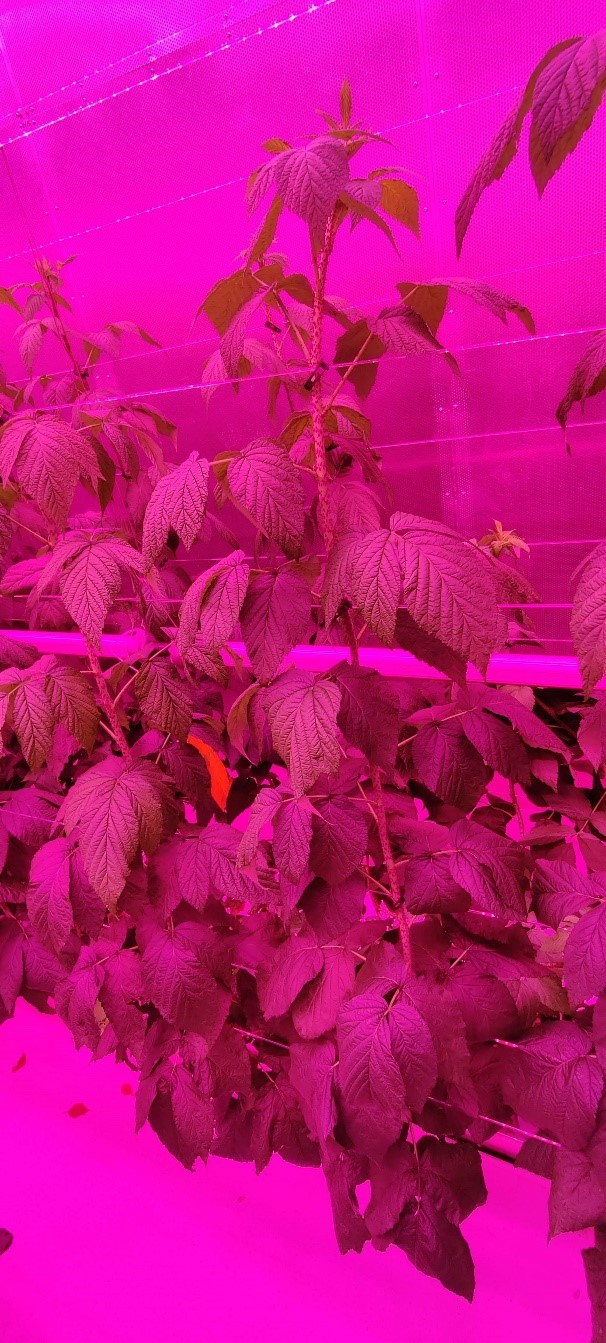
A full year’s yield in 18 weeks time
The initial primocane flush of the trial gave a promising result, yielding comparable results to outdoor cultivation on a per-plant basis. But due to the higher planting density indoors and shorter growth cycle from young plant to harvest completion, the berry yield effectively matched a full year’s outdoor primocane + floricane cultivation per square meter. Achieving approximately 2.5 kg/m2 in the 18-week first primocane period, which is equivalent to nearly 140 grams/m2/week. Also, with measured brix levels of up to 12.0 °Bx, we managed to produce sweet and tasty fruits.
We then pruned the trial plants for a second unchilled primocane round to see how they would perform. For this approach to be viable, matching or exceeding a harvest of 140 grams/m2/week is necessary; otherwise, cultivation with new starting material would eventually give a higher yearly production. We were hoping for a positive impulse from the already established root system, giving the new growth a head start, but the second round took 26 weeks and only yielded 1.1 kg/m2, resulting in 42 grams/m2/week. This leads us to conclude that a second primocane round is impractical without cold storage to induce dormancy and facilitate new bud development.
Further investigation
The results of this study show that repeated primocane cycles with fresh young plants could eventually yield approximately three times the outdoor full-year production per square meter. Following the floricane harvest, the canes will no longer bear fruit after their first flush and should be replaced with new starting material. Further investigation into the impact of pruning and cold storage on floricane production may be useful as it could enhance yields even further.
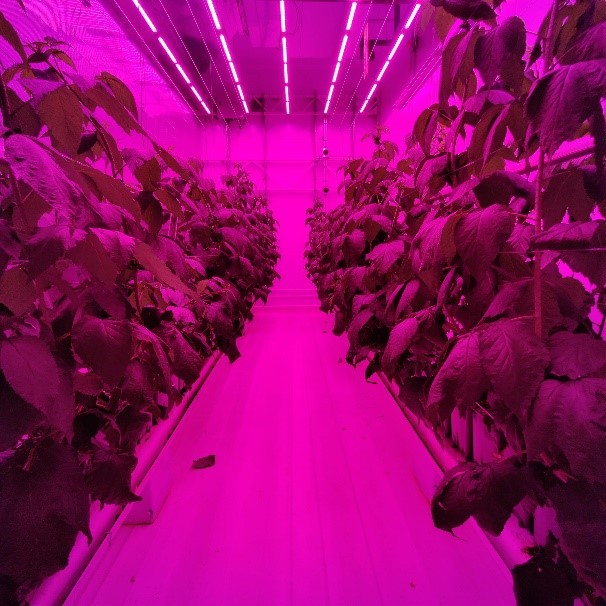
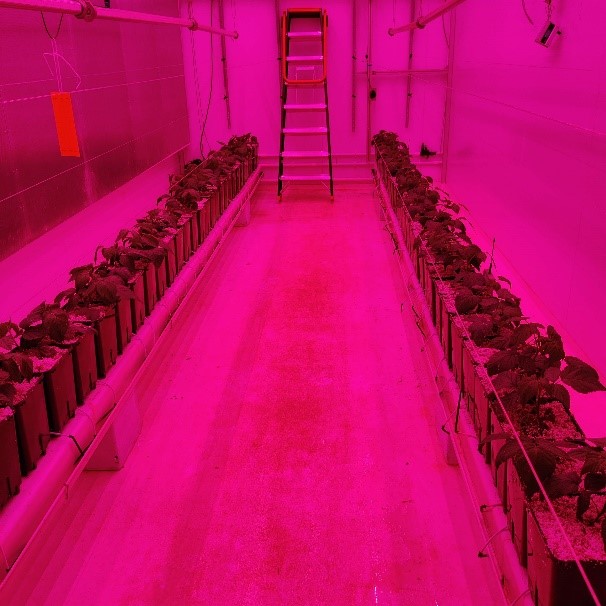
For further information, please contact:
Philips horticulture LED solutions by Signify
Daniela Damoiseaux – global marcom manager
Tel: +316 40578311
E-mail:Daniela.damoiseaux@signify.com
About Signify
Signify (Euronext: LIGHT) is the world leader in lighting for professionals and consumers and lighting for the Internet of Things. Our Philips products, Interact connected lighting systems and data-enabled services, deliver business value and transform life in homes, buildings and public spaces. In 2021, we had sales of EUR 6.9 billion, approximately 37,000 employees and a presence in over 70 countries. We unlock the extraordinary potential of light for brighter lives and a better world. We achieved carbon neutrality in 2020, have been in the Dow Jones Sustainability World Index since our IPO for six consecutive years and were named Industry Leader in 2017, 2018 and 2019. News from Signify is located at the Newsroom, Twitter, LinkedIn and Instagram. Information for investors can be found on the Investor Relations page.
New Zealand Contact:
Graeme Neale
Business Development Manager
Specification, Systems and LED Agriculture Solutions
Mobile + 64 21 2254526
Email graeme.neale@signify.com
Level 3, 123 Carlton Gore Road,
Newmarket, Auckland 1023

Australian Contact:
Aart Slobbe
Account Manager Horticulture LED Solutions
+ 61 448 881 338
Email aart.slobbe@signify.com
Suite 022, 44 Lakeview Drive
Scoresby, VIC 3179, Australia

About Signify
Signify (Euronext: LIGHT) is the world leader in lighting for professionals and consumers and lighting for the Internet of Things. Our Philips products, Interact connected lighting systems and data-enabled services, deliver business value and transform life in homes, buildings and public spaces. With 2020 sales of EUR 6.5 billion, we have approximately 38,000 employees and are present in over 70 countries. We unlock the extraordinary potential of light with smart lighting solutions that improve quality of life, and by working towards a sustainable future. We became a carbon-neutral company in 2020, since our stock market listing, we have been in the Dow Jones Sustainability World Index for four years in a row and were named Industry Leader in 2017, 2018 and 2019. News from Signify is located at the Newsroom, Twitter, LinkedIn and Instagram. Information for investors can be found on the Investor Relations page.
For all media releases please send to marie@grower2grower.co.nz or upload directly: https://www.grower2grower.co.nz/article-form/
CLASSIFIED
Photo
Gallery
Subscribe to our E-Zine
More
From This Category
35-40% reduction in energy consumption while simultaneously boosting light output by 35-40%.
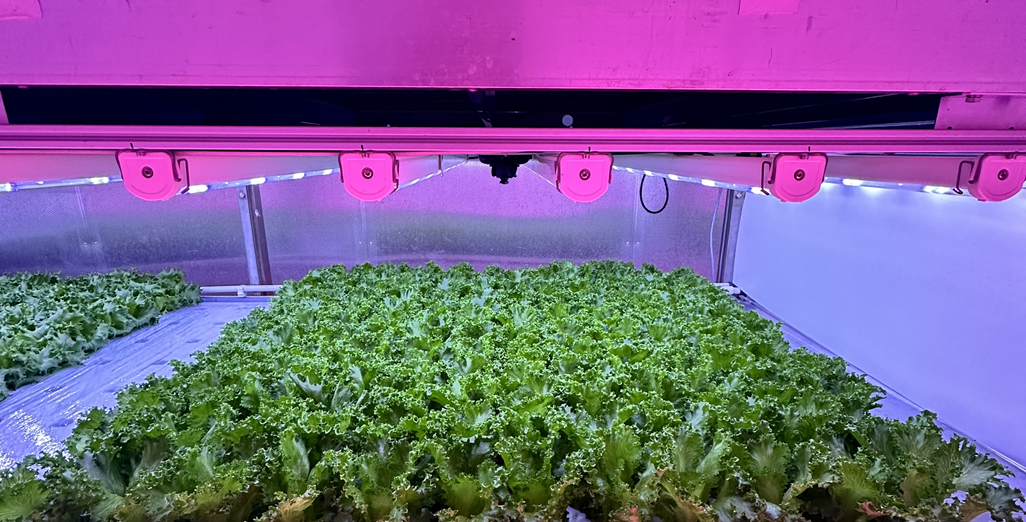
Crispy lettuce: achieving yield, quality, and longer shelf-life in vertical farms
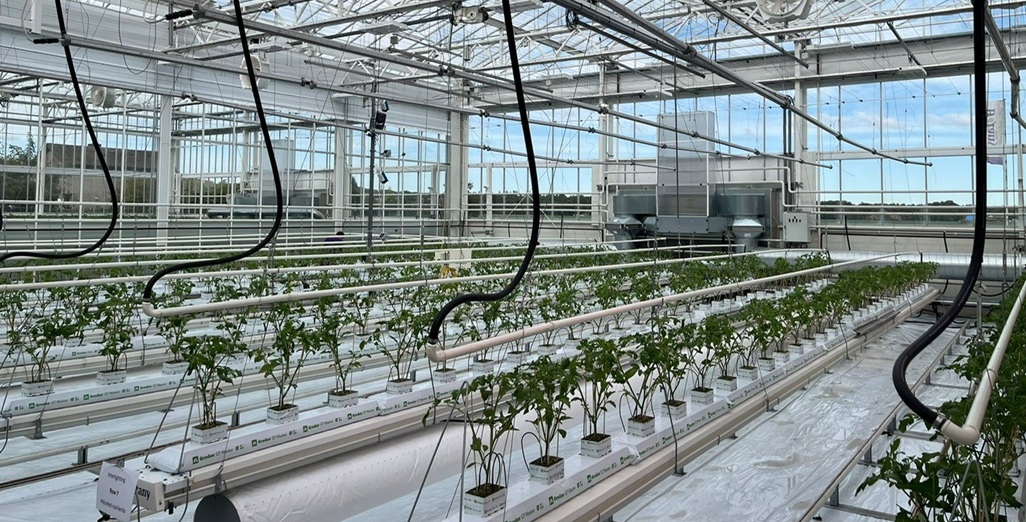
Signify and Grodan start third year of low-energy trial to test holistic approach on larger tomatoes on the vine
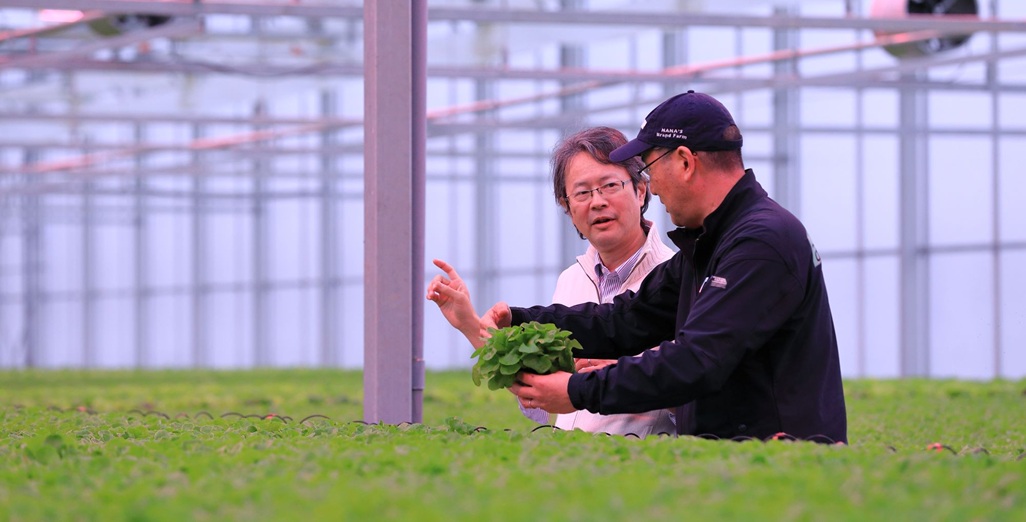
Philips GreenPower LED Solutions enables Add One Farm to increase yield and stabilize winter production
